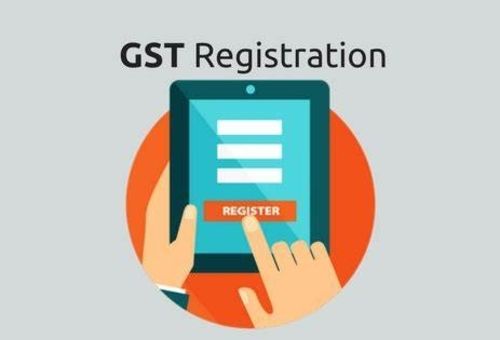Total List for Effective Singapore GST Registration
Total List for Effective Singapore GST Registration
Blog Article
The Ultimate Overview to Simplifying the GST Enrollment Refine and Needs for Small Company Owners

Comprehending GST Essentials
To realize the fundamentals of the Item and Services Tax Obligation (GST) system, tiny organization owners need to first understand its underlying concepts and ramifications. Under the GST regimen, businesses are needed to sign up and accumulate tax obligation on behalf of the federal government, making certain transparency and conformity.
One of the key principles of GST is input tax obligation credit rating, which allows organizations to assert credit history for tax obligations paid on their purchases. This system stops the cascading effect of taxes and promotes performance in the tax obligation system. Additionally, GST is a destination-based tax obligation, implying that the tax is levied at the factor of usage as opposed to the point of origin. This makes sure fair distribution of tax revenue amongst states based upon where the solutions or products are taken in. Understanding these basic concepts is crucial for small company owners to browse the intricacies of the GST system and make certain compliance with the regulation.
Eligibility Requirements for Enrollment
Having developed a fundamental understanding of GST concepts, local business proprietors must currently meet specific qualification requirements to wage the registration process. In India, entities took part in the supply of items or solutions with an annual accumulation turn over exceeding Rs. 40 lakhs (Rs. 10 lakhs for unique group states) are needed to sign up for GST. Furthermore, particular businesses such as those associated with inter-state supply of items, casual taxed persons, and those required to pay tax obligation under the reverse fee system have to sign up for GST irrespective of their turnover. Additionally, services that were signed up under the previous tax regime (VAT, service tax, etc) are also mandated to sign up under GST. Agricultural businesses that just supply produce out of main manufacturing are exempt from GST enrollment. It is crucial for local business owner to carefully evaluate their qualification based on these requirements to make certain conformity with the regulation and prevent any type of charges for non-compliance.
Papers Required for GST Enrollment

Simplified Registration Process Steps
Following the collection and verification of the requisite files, the registration procedure for GST can be navigated with a collection of simplified steps created to facilitate effective compliance for small company proprietors. The initial step includes visiting the GST portal and picking the 'New Registration' option. Consequently, the applicant needs to fill out Component A of the GST REG-01 type with information such as frying pan, mobile number, and email address to acquire an OTP for verification. Once the OTP is received and gotten in, a Short-lived Reference Number (TRN) is created for more proceedings. The following step calls for completing Part B of the form with needed business details, uploading sustaining documents, and finishing the verification process utilizing DSC or EVC. Finally, upon effective verification, an Application Recommendation Number (ARN) is released, indicating the completion of the GST enrollment procedure. By adhering to these simplified actions, tiny business proprietors this article can successfully sign up for GST and guarantee conformity with tax policies.
Tips for Ensuring Conformity
To keep regulatory adherence and functional honesty, thorough oversight and aggressive procedures are essential in making certain conformity with GST requirements for little service owners. Tiny company owners need to remain updated with GST policies, submitting target dates, and any kind of modifications in tax obligation prices to avoid fines and preserve a good standing with tax authorities. Participating in find more info GST recognition workshops or training programs can enhance understanding and compliance with GST policies, eventually profiting the company in the long run.
Conclusion
To conclude, small company proprietors have to understand the essentials of GST, satisfy the eligibility criteria, gather needed documents, and comply with the streamlined registration process actions to ensure compliance. By streamlining the GST registration process and demands, local business proprietors can avoid charges and operate their services smoothly within the legal structure - Singapore GST Registration. It is essential for tiny business owners to remain certified and educated with GST guidelines to preserve an effective business procedure
Little organization proprietors looking for GST enrollment should guarantee they collect and send the needed papers to finish the registration process successfully. The papers needed for GST registration normally include proof of company enrollment or unification, FRYING PAN (Permanent Account Number) card of the service identification, entity and address proof of the promoters/partners/directors, photographs, address proof of the location of company, bank account declarations or terminated cheques, click here to find out more and consent types. Participating in GST recognition workshops or training programs can boost understanding and compliance with GST regulations, ultimately benefiting the organization in the long run.
By simplifying the GST registration procedure and requirements, small business owners can avoid charges and run their services smoothly within the lawful structure. It is crucial for small company proprietors to stay compliant and educated with GST laws to maintain an effective business procedure.
Report this page